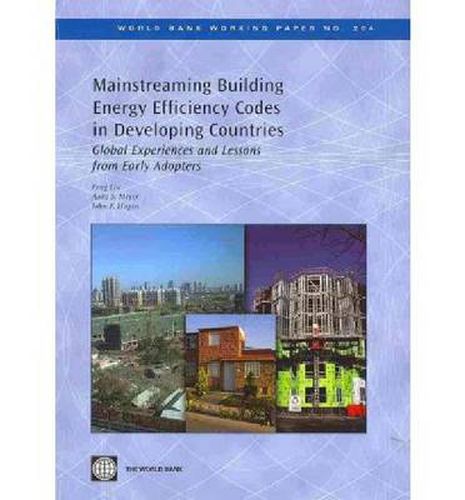Readings Newsletter
Become a Readings Member to make your shopping experience even easier.
Sign in or sign up for free!
You’re not far away from qualifying for FREE standard shipping within Australia
You’ve qualified for FREE standard shipping within Australia
The cart is loading…






Urbanisation and growing wealth in developing countries portend a large increase of demand for modern energy services in residential, commercial and public-service buildings in the coming decades. Pursuing energy efficiency in buildings is vital to energy security in developing countries and is identified by the Intergovernment Panel on Climate Change as having the greatest potential for cost-effective reduction of CO2 emissions by 2030 among all energy-consuming sectors. Building energy efficiency codes (BEECs), along with energy efficiency standards for major appliances and equipment, are broadly recognised as a necessary government intervention to overcome persistent market barriers to capturing the economic potential of energy efficiency gains in the residential, commercial and public-service sectors. Implementation of BEECs help prevent costly energy wastes over the lifecycles of buildings in space heating, air conditioning, lighting, and other energy service requirements. This report summarises the findings of an extensive literature survey of the experiences of implementing BEECs in developed countries, as well as those from case studies of China, Egypt, India, and Mexico. This report highlights the key challenges to improving compliance enforcement in developing countries, including government commitment to energy efficiency, the effectiveness of government oversight of the construction sector, the compliance capacity of building supply chain, and financing constraints.
$9.00 standard shipping within Australia
FREE standard shipping within Australia for orders over $100.00
Express & International shipping calculated at checkout
Urbanisation and growing wealth in developing countries portend a large increase of demand for modern energy services in residential, commercial and public-service buildings in the coming decades. Pursuing energy efficiency in buildings is vital to energy security in developing countries and is identified by the Intergovernment Panel on Climate Change as having the greatest potential for cost-effective reduction of CO2 emissions by 2030 among all energy-consuming sectors. Building energy efficiency codes (BEECs), along with energy efficiency standards for major appliances and equipment, are broadly recognised as a necessary government intervention to overcome persistent market barriers to capturing the economic potential of energy efficiency gains in the residential, commercial and public-service sectors. Implementation of BEECs help prevent costly energy wastes over the lifecycles of buildings in space heating, air conditioning, lighting, and other energy service requirements. This report summarises the findings of an extensive literature survey of the experiences of implementing BEECs in developed countries, as well as those from case studies of China, Egypt, India, and Mexico. This report highlights the key challenges to improving compliance enforcement in developing countries, including government commitment to energy efficiency, the effectiveness of government oversight of the construction sector, the compliance capacity of building supply chain, and financing constraints.